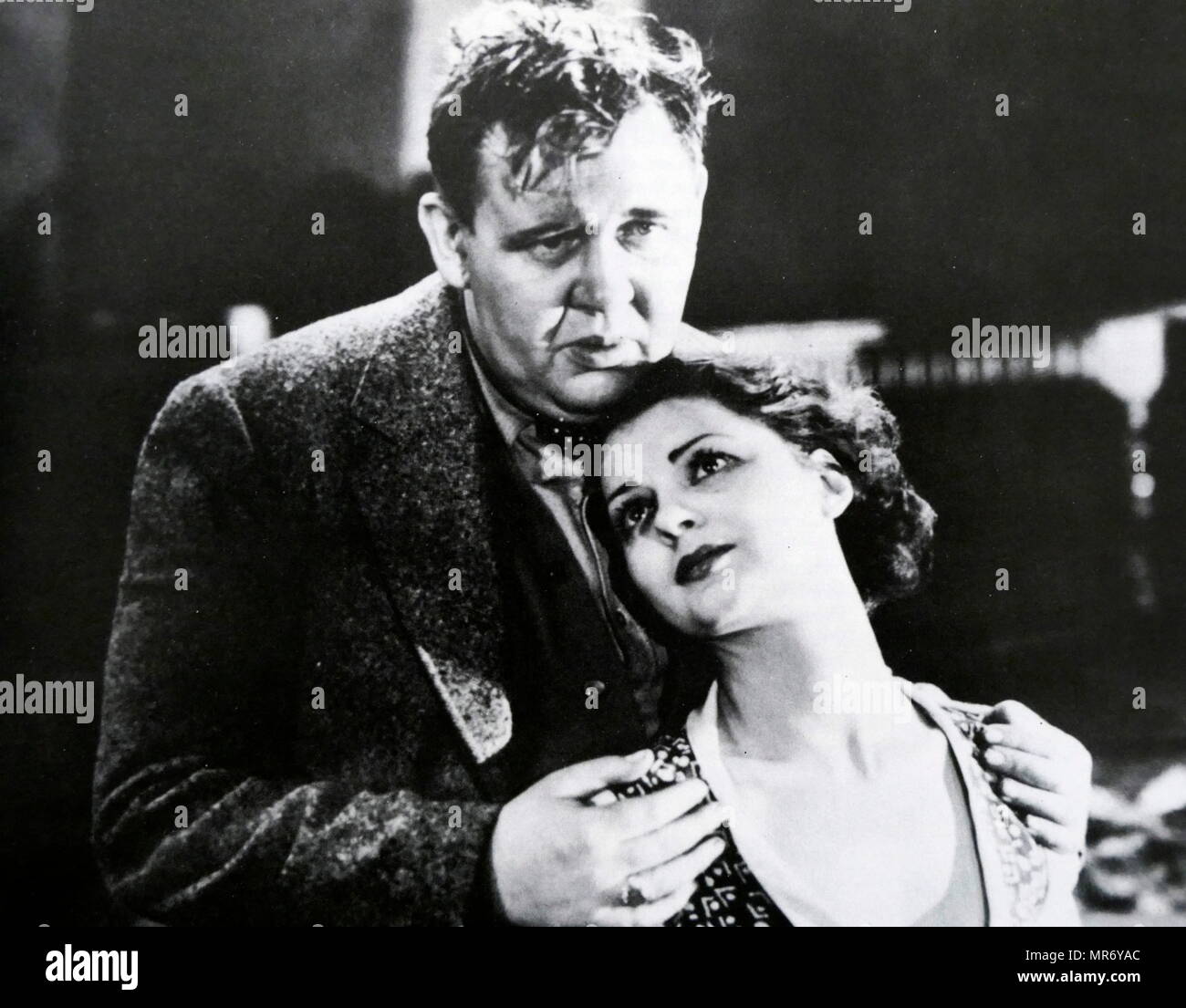James Whale: Cinematic Master Of Horror And Dark Comedy is a comprehensive guide to the life and work of one of the most influential filmmakers of the 20th century. James Whale directed some of the most iconic horror films of all time, including Frankenstein (1931), The Bride of Frankenstein (1935), and The Invisible Man (1933). He also directed a number of dark comedies, such as The Old Dark House (1932) and The Invisible Man Returns (1940).

The Old Dark House is a 1932 American pre-Code horror comedy film - Source www.alamy.com
Editor's Notes: "James Whale: Cinematic Master Of Horror And Dark Comedy" have published today date", because of increase in innovative capabilities, functionality, and efficiency of “James Whale: Cinematic Master Of Horror And Dark Comedy”, we decided it was time to revisit the topic to make sure that we're providing our readers with the most up-to-date information.
As part of this update, we've done some analysis, digging information, made James Whale: Cinematic Master Of Horror And Dark Comedy we put together this James Whale: Cinematic Master Of Horror And Dark Comedy guide to help target audience make the right decision.
Key Differences or Key Takeaways:
| Horror Films | Dark Comedies |
|---|---|
| Focus on creating suspense and fear | Use humor to explore dark and macabre themes |
| Often feature supernatural or monstrous creatures | Often set in everyday settings |
| Can be very violent and gory | Can be satirical or even slapstick |
Transition to main article topics:
The guide covers all aspects of James Whale's career, from his early days as a stage actor to his success as a Hollywood director. It also includes a filmography of all of his films, as well as a bibliography of books and articles about him.
James Whale: Cinematic Master Of Horror And Dark Comedy is a valuable resource for anyone interested in the history of horror and dark comedy cinema. It is a well-written and informative guide that provides a comprehensive overview of James Whale's life and work.
FAQs
James Whale, the renowned director of classic horror and dark comedy films such as "Frankenstein" and "Bride of Frankenstein," left a lasting legacy in cinema. Below are some frequently asked questions regarding his life and work:

Beluga whale wallpaper | 1920x1200 | #11678 - Source eskipaper.com
Question 1: What are James Whale's most famous works?
James Whale is known for directing several iconic horror and dark comedy films, including "Frankenstein" (1931), "Bride of Frankenstein" (1935), "The Invisible Man" (1933), and "The Old Dark House" (1932), among others.
Question 2: What were the unique elements of Whale's directing style?
Whale's directing style was characterized by its use of stylized visuals, dark humor, and a focus on the psychological aspects of his characters. He often employed expressionist lighting and camerawork to create a haunting and dreamlike atmosphere.
Question 3: How did Whale's personal life influence his filmmaking?
Whale's personal experiences, including his service in World War I and his homosexuality, shaped his perspective on the human condition. His films often explored themes of isolation, alienation, and the fragility of life.
Question 4: What impact did Whale's films have on the horror genre?
Whale's films revolutionized the horror genre, setting new standards for production design, cinematography, and character development. His work significantly influenced subsequent horror films and established him as one of the most influential directors in the genre.
Question 5: What are some of the critical assessments of Whale's work?
Whale's films have received critical praise for their technical brilliance and psychological depth. They have been widely recognized for their artistic merit and their contribution to the development of cinema as an art form.
Question 6: How is James Whale remembered today?
James Whale is remembered as a visionary director who left an indelible mark on the horror and dark comedy genres. His films continue to inspire and entertain audiences, and his legacy as a master of cinema endures to this day.
Whale's contributions to cinema extend beyond his famous monster movies. He also directed comedies, musicals, and dramas, showcasing his versatility as a filmmaker. Whale's work remains a testament to his artistry and his enduring influence on the art of filmmaking.
Tips
From James Whale: Cinematic Master Of Horror And Dark Comedy, a renowned director known for his chilling horror films and darkly comedic works, here are some valuable tips for creating atmospheric and captivating cinema:
Tip 1: Embrace the Power of Darkness
Whale's films, like "Frankenstein" and "The Bride of Frankenstein," showcase the evocative power of darkness. Employ shadows, low-key lighting, and obscured figures to generate a sense of unease and mystery. This technique enhances the impact of horror scenes and adds depth to comedic moments.
Tip 2: Craft Memorable Characters with Quirks and Flaws
Whale's characters, such as the monstrous yet sympathetic Frankenstein's monster and the eccentric Dr. Pretorius, possess distinct quirks and flaws. Develop characters with relatable motivations and vulnerabilities to evoke empathy and create a connection with the audience.
Tip 3: Utilize Lighting to Enhance Atmosphere and Mood
Whale was a master of lighting design. In "The Old Dark House," he used stark contrasts between light and shadow to create a sense of foreboding. Experiment with different lighting techniques to establish specific moods and atmospheres, whether it's the eerie glow of a haunted house or the warm embrace of a comedic scene.
Tip 4: Employ Sound to Amplify Emotional Impact
Whale recognized the transformative power of sound. In "Bride of Frankenstein," thunderous sound effects underscore the creature's destructive rampage. Utilize sound strategically to heighten tension, evoke emotions, and immerse the audience in the cinematic experience.
Tip 5: Seek Balance between Horror and Comedy
Whale's films often blend horror and comedy, as seen in "The Invisible Man." This uneasy harmony creates a unique and captivating experience. Explore the interplay between these contrasting elements to craft narratives that both scare and entertain.
Summary of key takeaways: Embrace darkness, create relatable characters, utilize lighting and sound effectively, balance horror and comedy, and strive for innovation. These tips provide a framework for aspiring filmmakers seeking to craft atmospheric and engaging cinematic experiences.
James Whale: Cinematic Master Of Horror And Dark Comedy
James Whale, a celebrated filmmaker of the early 20th century, left an indelible mark on the cinematic landscape with his mastery of horror and dark comedy. His unique style and meticulous attention to detail propelled him to the forefront of the film industry, resulting in a repertoire of groundbreaking and unforgettable works that continue to captivate audiences even today.
- Macabre Masterpieces: Whale's films, such as "Frankenstein" and "The Bride of Frankenstein," are chilling and atmospheric explorations of the macabre, captivating viewers with their eerie visuals and haunting narratives.
- Dark Humor: Despite the somber subject matter, Whale injected his films with a sly wit and dark humor, creating a distinct blend of horror and comedy that became his signature style.
- Visual Virtuosity: Whale's films are renowned for their striking visuals, from the iconic imagery of "Frankenstein's monster" to the opulent sets of "The Invisible Man." His keen eye for composition and lighting elevated his films into works of art.
- Complex Characters: Even within the realm of horror, Whale created complex and sympathetic characters, exploring the psychological depths of his subjects and resonating with audiences on an emotional level.
- Social Commentary: Through his films, Whale subtly addressed social issues and prejudices, using horror as a metaphor to critique societal norms and inequalities.
- Legacy and Influence: Whale's contributions to the horror and dark comedy genres continue to inspire filmmakers and captivate viewers alike, solidifying his place as a cinematic master and a pioneer of the macabre.
James Whale's films transcended mere entertainment, becoming powerful reflections of the human psyche and the complexities of the human condition. His ability to blend horror and humor, create memorable characters, and explore profound themes through the medium of film solidified his status as a cinematic visionary and an enduring influence on the world of cinema.

The Old Dark House Blu-ray review: James Whale's Gothic horror restored - Source www.scifinow.co.uk
James Whale: Cinematic Master Of Horror And Dark Comedy
James Whale's expertise in both horror and dark comedy genres is noteworthy, as it showcases his range and versatility as a filmmaker. His ability to balance elements of fear and humor effectively contributed to the lasting impact of his works. These genres often explore the darker aspects of human nature, and Whale's films deftly navigated these themes while also providing entertainment value.

Horror Film DIrector, James Whale Signed Theater Costume Sketches by - Source www.abebooks.com
One notable example is "Frankenstein" (1931), a horror classic that skillfully blends elements of the grotesque with moments of dark comedy. Whale's portrayal of the monster as both terrifying and sympathetic resonates with audiences to this day. Similarly, in "Bride of Frankenstein" (1935), Whale seamlessly transitions between moments of suspense and humor, creating a unique and engaging cinematic experience.
The connection between horror and dark comedy in Whale's films goes beyond entertainment. These genres allowed him to explore complex themes such as the nature of good and evil, the fragility of human existence, and the absurdity of certain societal norms. By combining elements of fear and humor, Whale challenged audiences to confront their own fears and reflect on the darker aspects of life in a thought-provoking and often entertaining manner.
Conclusion
James Whale's mastery of both horror and dark comedy genres cemented his status as a cinematic icon. His ability to blend these elements effectively created a unique and unforgettable cinematic experience for audiences. Whale's films not only entertained but also explored profound themes, challenging viewers to confront their fears and reflect on the darker aspects of human nature. His legacy continues to inspire and influence filmmakers and audiences alike.
The connection between horror and dark comedy in Whale's films remains a testament to his artistic vision and storytelling prowess. By seamlessly transitioning between these genres, he created a body of work that transcends time and continues to resonate with audiences today.